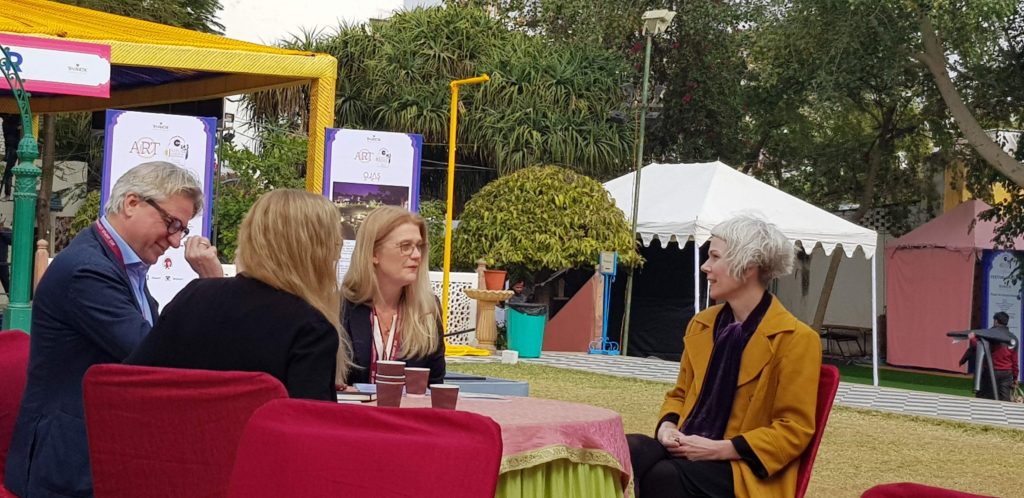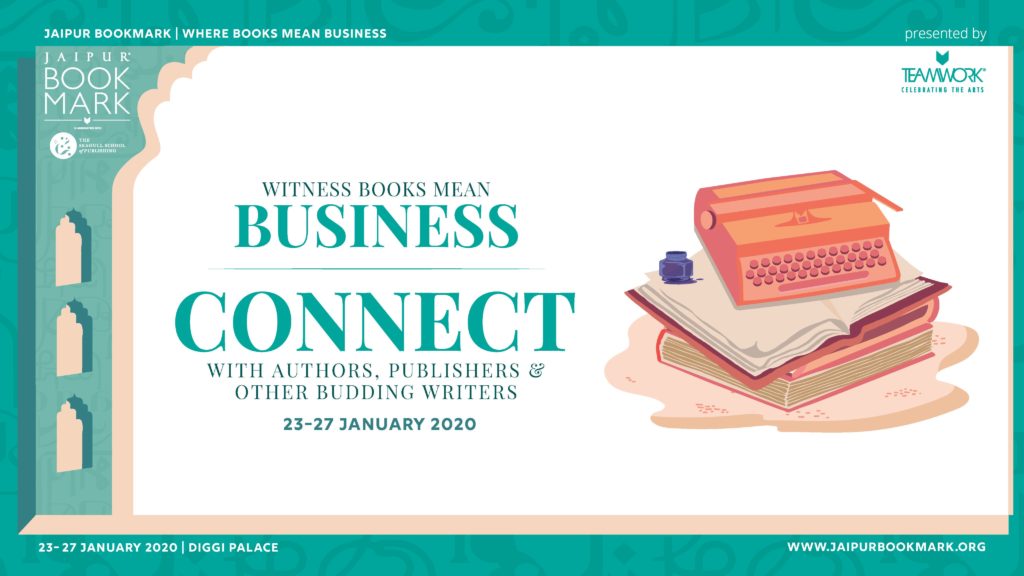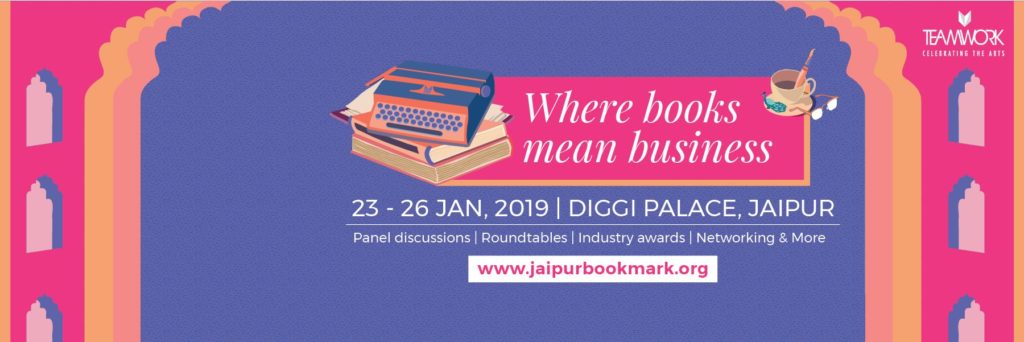Jaipur BookMark — “Where books mean business!”

Jaipur BookMark is a critical component of Jaipur Literature Festival . The tag line for JBM is “where books mean business”. It is certainly one of the largest literary festivals organised globally and has developed a brand identity that is synonymous with fascinating conversations and emergence of new ideas. It is inevitable that Jaipur BookMark was established as an independent B2B platform while being closely aligned to Jaipur Literature Festival. It makes perfect sense to capitalise upon this fantastic congregation of publishing professionals at the literature festival enabling a cross pollination of experiences and perhaps new synergies developing. It is also attaining critical significance in the global publishing calendar for Jaipur BookMark is held approximately four months after the Frankfurt Book Fair, which is the mecca of rights sales. Shifting the base from Europe to Asia, to a significant book market such as India, enables publishing professionals to review their conversations of Frankfurt as well as explore new ideas before buckling down for the next few months and working on their lists.
So far there have been six editions of Jaipur BookMark consisting of more or less the same format. It is a mix of panel discussions, business panels and focused group discussions. There are plenty of networking opportunities worked into the programming. For instance, the event begins on the eve of the main literature festival enabling participants to have key conversations without any distractions on the business of publishing. There are plenty of coffee breaks and a longish lunch enabling conversations to happen unhurriedly. The weather is good. The winter sun is perfect. There is a crispness in the air that is welcome. The impeccable hospitality arrangements enable speakers and participants to mingle, sit at various tables and chat leisurely. Emphasising these aspects of the interactions is as important as the business angle of the conclave. As Jeremy Trevathan, Publisher, Macmillan says “From the evidence before me in Jaipur the Indian book publishing scene is obviously developing rapidly and the JBM was a perfect snapshot of the diverse challenges and exciting opportunities this affords. Whether it was a panel on diverse retail models or the commercial health of conglomerate publishing versus independents the discussion was lively, engaged and, yes, thrilling. “
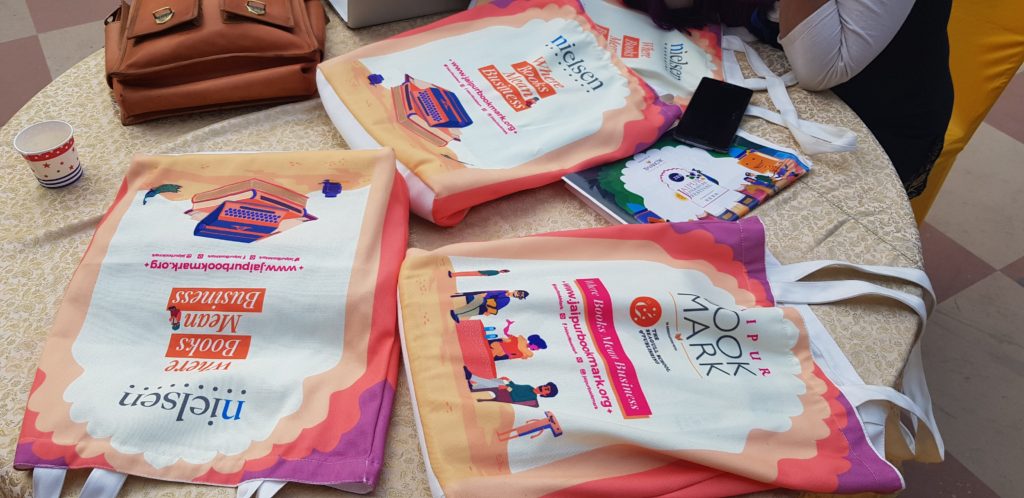
The Jaipur BookMark management ensures that there is a crackling good mix of professionals. The impressive 2019 edition had:
- 130+ speakers
- Delegations from 20 countries: Australia, USA, Canada, France, Nepal, Lithuania, Paraguay, Switzerland, Tunisia, Argentina, UK, Ireland, Norway, Germany, UAE, Egypt, Pakistan, India, amongst others.
- 23+ sessions over 4 days
- 17 panel discussions
- 7 business-focus and 3 translation-focus sessions
- 24 languages represented
- 11 international languages
- 50+ international delegates
- 3 major industry prizes announced of which two were focussed on translations. These were the Romain Rolland Prize by the French Book Office, the Vani Foundation and the Oxford Bookstore Book Cover Prize.
In fact the keynote address for the 2019 edition was given by Juergen Boos, President and CEO, Frankfurt Book Fair on “Freedom to publish“. He referred to JBM and JLF as “confluence of cultures” and after expressing his concern about the growing threats on freedom of speech and expression around the world, he urged those publishers present in the audience who “As discoverers and disseminators of ideas and free thought, we, as a community, have a greater responsibility to uphold freedom of expression. At the same time, we cannot withhold our criticism of its misuse.”

All the discussions are fascinating. On the third day of the 2019 business conclave, Friday 25 Jan 2019, I moderated a session on “Indies vs Giants”. The scope of the discussion was: “Independent publishers with lower overheads are finding their niche position in the publishing industry around the world, even as publishing giants are consolidating their positions. This session talks about creative risk taking and the tools brave, new publishers adopt.” The panellists were publishers Vera Michalski-Hoffman (Libella group), Karthika VK ( Westland/Amazon), Jeremy Trevathan (Macmillan), and Anna Solding (Midnight Sun Publishing). Vera Michalski-Hoffman also delivered the keynote address. Born in Basel, Switzerland, in a family with Swiss, Russian and Austrian roots, Vera Michalski-Hoffmann spent her childhood in France, studied in Spain and has a degree in Political Science from the Graduate institute of International Studies in Geneva. She established a foundation named after her late husband, The Jan Michalski Foundation for Literature and Writing to actively support literary activities in different countries. She is now the publisher of the Libella group that comprises the following imprints: In France: Buchet/Chastel, Phébus, Le temps apprivoisé, les Cahiers dessinés, Libretto. In Switzerland: Noir sur Blanc, with a new line called Notabilia, Editions Favre. And in Poland: Oficyna Literacka Noir sur Blanc. She also acquired The Polish Bookshop in Paris. Her keynote address was a fascinating account of the emergence of the Libella group and its publishing history, including some of its A&M. Jaipur BookMark offers such opportunities that are to be treasured.
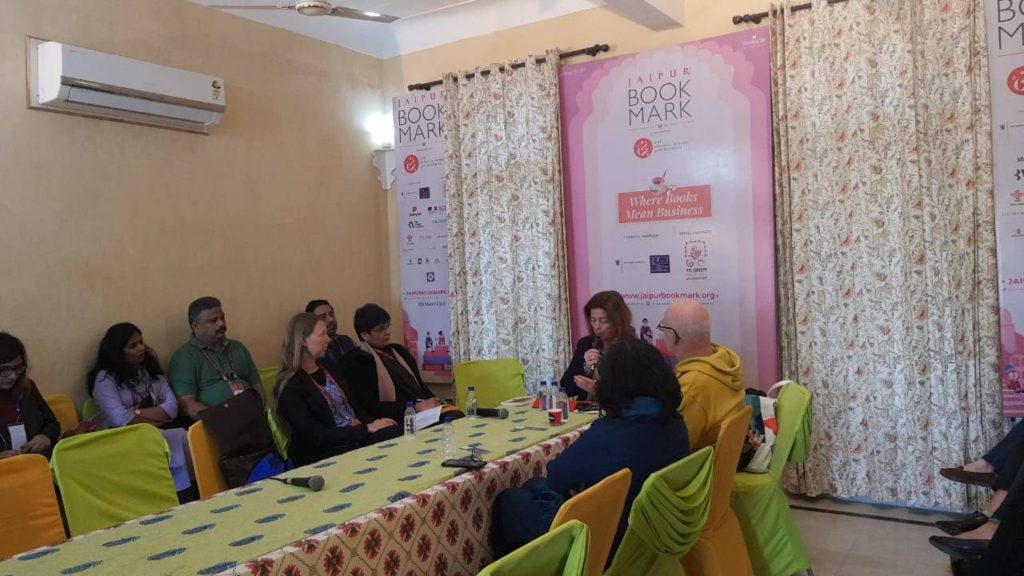
The panel discussions are varied and interesting such as this one on children’s literature: “Writing for Children, Writing as Children”. The panelists included Anoushka Sabnis, Maja Lunde, Paro Anand and Rohini Chowdhury in conversation with Manisha Chaudhry.
JBM has various components such as platforms to present unpublished manuscripts iWrite where book deals can be signed. It is a platform where authors have been known to find literary agents too.
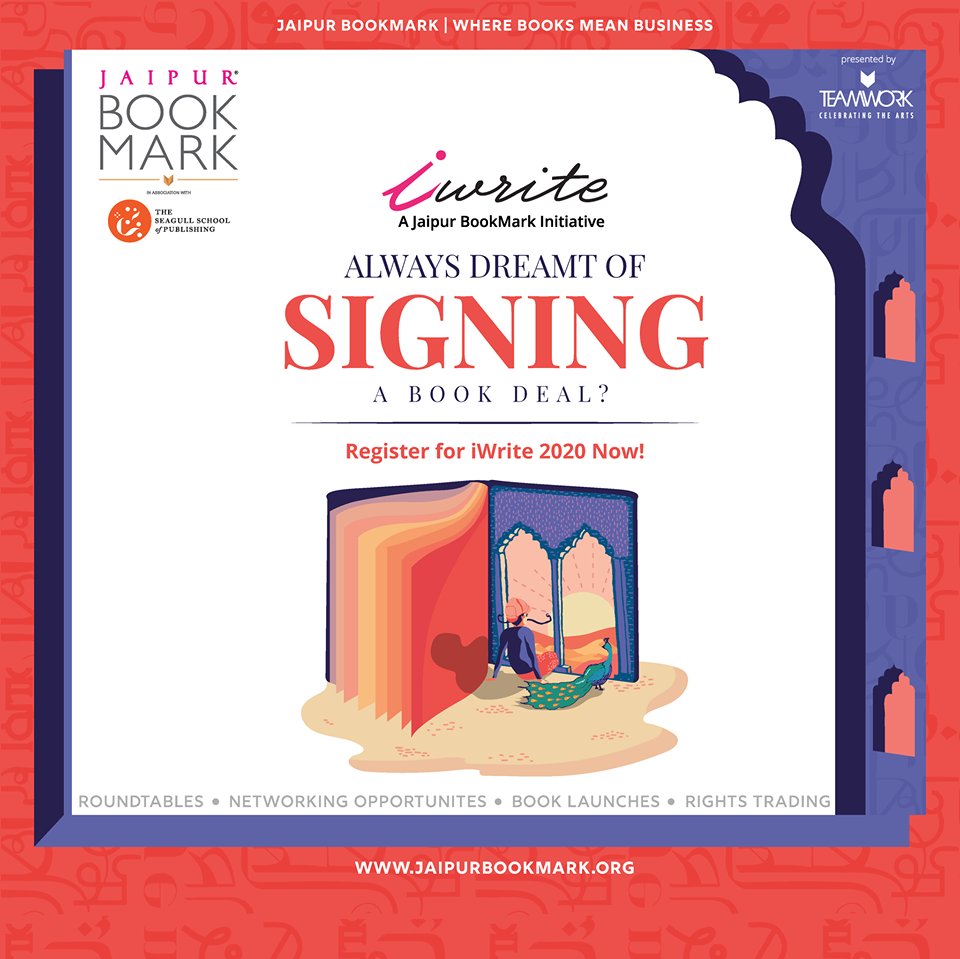
The Jaipur BookMark 2020 edition promises to be equally, if not more, exciting for while it offers many spaces for established professionals to meet, it also enables new and emerging authors to participate.
Registerations for Jaipur BookMark are open now. Follow this link.

Key dates:
Jaipur BookMark: 22ND – 25TH JANUARY, 2020
Jaipur Literature Festival: 23 – 27 JANUARY 2020
The list of confirmed speakers for JBM 2020 are:
- Aanchal Malhotra
- Aditi Maheshwari Goyal
- AJ Thomas
- Alan G. Thomas
- Anisur Rahman
- Anushree Rathore
- Arsen Kashkashian
- Arunava Sinha
- Aspen Walker
- Atiya Zaidi
- Chandra Prakash Deval
- Chandrahas Choudhury
- Chris Agee
- Deepa Agarwal
- Devangana Dash
- Jamie Andrews
- Jaspreet Bindra
- Jayapriya Vasudevan
- Jeff Deutsch
- Jessica Alice
- Jo Lendle
- Krishnendu Ray
- Madhur Jaffrey
- Malashri Lal
- Manisha Chaudhry
- Michael Dwyer
- Mindy Gill
- Naveen Choudhary
- Naveen Kishore
- Oscar Pujol
- Payal Arora
- Preeti Gill
- Raghav Chandra
- Ranjit Hoskote
- Ravi Deecee
- Richa Jha
- Rick Simonson
- Rohini Chowdhury
- Shuchi Saraswat
- Simon Westcott
- Sridhar Balan
- Sunny Singh
- Urvashi Butalia
- Vaishali Mathur
- Vani Tripathi Tikoo
Go for it all aspiring authors and established publishing professionals. You will not regret attending this business mixer. It is utterly brilliant!
25 Nov 2019

